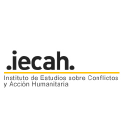WORKING WITH DG ECHO AS AN NGO PARTNER | FPA 2014 - 2020
FINAL REPORT
It takes into account the total amount of the Agreements.
The controls that ECHO will make at liquidation stage will vary according to the level of the error rate of the partner identified during the periodic assessment. If the error rate is lower than 2%, a fast track procedure will be applied, meaning that, in principle, ECHO will not go into the details of the ledger. In case the error rate is higher than the 2%, ECHO will analyse the report in more detail.
However, if needed, ECHO reserves the right to ask for more information regardless of the error rate identified.
As stated in the Article 8.1 of the General Conditions , costs related to the preparation of the final report shall be deemed eligible even if incurred after the eligibility period of the Action.
Therefore, if linked to the preparation of the final report, office running costs may be eligible, provided that they are reasonable, justified and compliant with the principle of sound financial management, in particular regarding economy and efficiency.
In principle, at the final reporting stage the Partner should report only on the incurred costs.
Consortia within ECHO-funded grant agreements are defined as an Action under which several FPA partners work together under a consortium arrangement, with one FPA partner signing the Specific Grant Agreement and acting as the lead of the consortium, while other FPA partners also take part in the implementation. DG ECHO will not impose on partners to work in consortia. However, it may decide to fund voluntary consortia when operationally justified.
The Specific Grant Agreement will be signed only with the lead partner organisation, while the other consortia members will be described in section 6.7 of the Single Form. In order to ease ECHO assessment of the proposal, it might be advisable to indicate which partner will be in charge of a specific result.
As there is only one signatory of the Agreement, that partner carries the legal and financial responsibility for the action.
Nevertheless, several facilities are available when working in an ECHO-funded Action implemented by a consortium:
- The consortium members may agree with the lead member that each applies its own procurement rules and, if applicable, their own depreciation methodology of equipment.
- In its risk assessment, ECHO will take in consideration the share of each consortium member from ECHO's contribution, rather than the whole amount being calculated under the share of the lead partner.
- In addition, it may be useful to recall that:
- In case it is needed to have more time for the lead partner to gather the data from the other members, ECHO may agree to a longer final reporting deadline than the default 3 months after the end of the implementation.
- In line with the general rules on eligibility, coordination costs linked to the consortia may be accepted as eligible, provided they are reasonable and necessary.
Here again, it is necessary to refine the approach taken depending on which account the unspent balances are held in.
a) if, for whatever reason, some of the money to be distributed to the final beneficiaries is left pending in the Organisation's central holding account at the end of the Action's eligibility period - that money represents an unspent balance which cannot be charged to any donor. The calculation of the unspent balance per donor will be made on a pro rata basis.
Where needed, this balance may be recovered by ECHO following the agreed procedure in the special clause for the recovery of a surplus balance (currently in place with UNICEF, UNHCR, UNRWA, FAO, UNOPS, PAHO, WHO, UNDO & UN-HABITAT). Where this special clause is not already automatically used in the Agreement with a Partner it is suggested that the following text be included manually in Article 6.2 of all Agreements concerning the distribution of cash:
In the event of a final surplus balance of total financing over expenditures at the financial closure of a project:
- The Organisation shall specify in the final report the amount of the surplus balance in the holding currency used by the Organisation together with the estimated amount in Euro and where the exchange rate of the Organisation can be consulted.
- This surplus in holding currency used by the Organisation in the Organisation's accounts will be converted into Euro using the rate of exchange of the Organisation in force on the day when the Commission's internal recovery order is established, which amount is later reflected in the debit note sent to the Organisation.
- The resulting Euro equivalent will then be refunded to the Commission.
This provision will not apply to the exchange rates used for reporting.
Further exchange rate risks arising due to the need to use currencies other than the holding currency or the Euro will be borne by the Organisation.
If considered necessary it may be possible to consider re-wording this clause to specifically address the recovery of unspent amounts in cash-based Actions. With regard to exchange rate considerations a simpler alternative may be:
"In the event of a final surplus balance of total financing over expenditures at the financial closure of a project, the Organisation shall, in line with the financial rules of the Organisation, specify in the final report the amount of the surplus balance, which will be refunded to the Commission following the issuance of a debit note and in accordance with the agreed procedures".
Once again, if this simpler formulation is selected, exchange rate risks arising due to the need to use currencies other than the holding currency or the Euro will be borne by the Organisation.
b) if, for whatever reason, some of the money distributed to the final beneficiaries is left pending in the beneficiary's own account at the end of the Action's eligibility period - that money does not automatically represent an unspent balance since it has been 'incurred' and if is still under the control of the beneficiary. Funds that are however no longer under the control of the beneficiary due to the timeframe having expired or deactivation of an account are considered as unspent funds and subject to return to the donor. The mere fact that a cost has been "incurred", naturally, will not make it an eligible cost unless the other criteria are also respected. However, in multi-donor Actions questions on cost eligibility of this nature will not always have a financial impact as ineligible costs may be covered by the Notional Approach.
In certain contexts the Humanitarian Organisations may be able to ascertain that, due to inactivity or other reasons the account in the name of the final beneficiary has been deactivated. ECHO does not require its Partners to do this but it seems that it may be emerging as a good practice amongst humanitarian actors. If in such context the Humanitarian Organisation is able to reclaim the unspent balance on the beneficiary's account that balance, it is proposed to require that this balance be returned to the central holding account to be treated together with the global unspent balance (point a) above).





